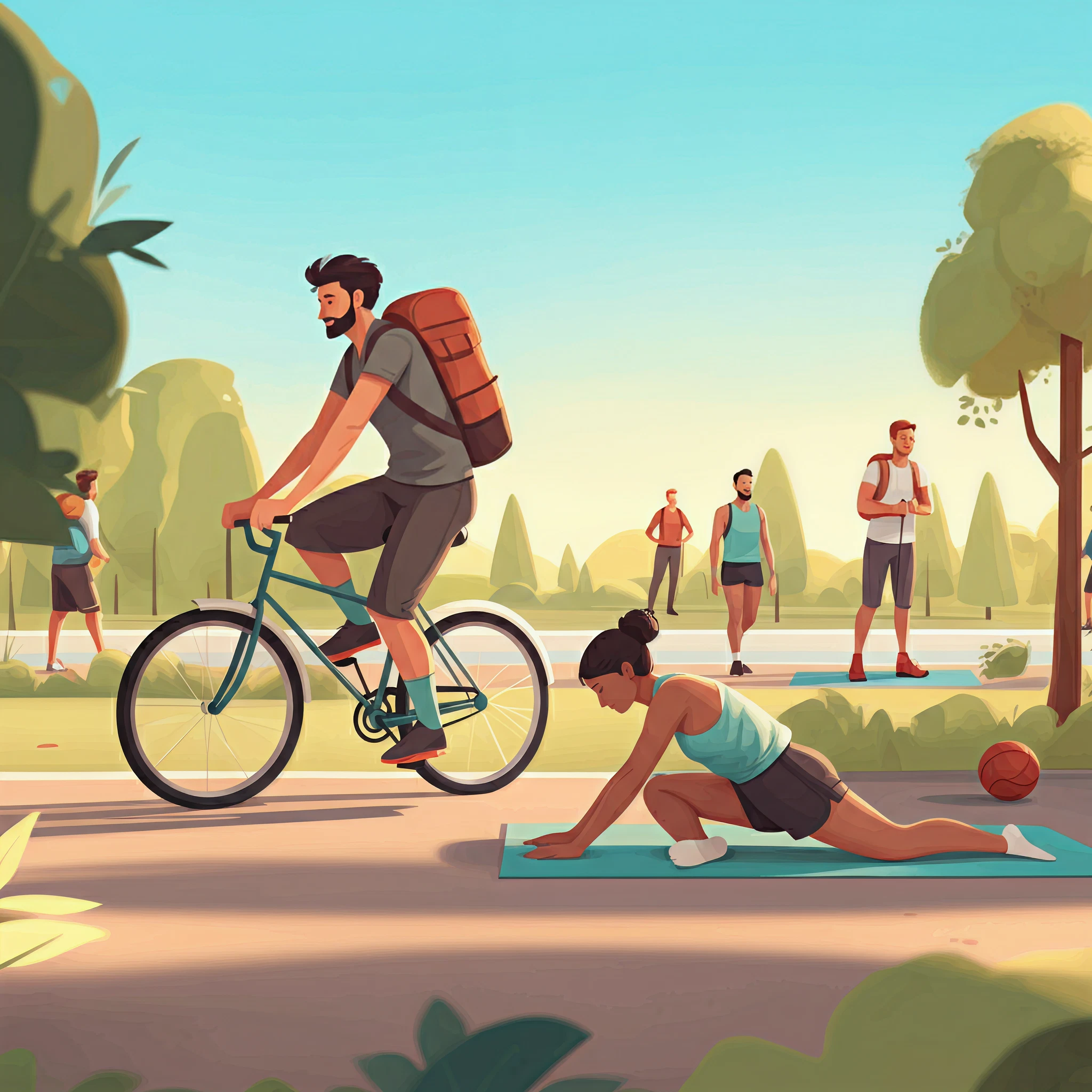Engaging in recreational activities isn’t just a way to unwind after a long day; it’s also a powerful way to boost your fitness and overall well-being. Whether it’s hiking, swimming, playing soccer, or dancing, these activities combine fun and physical movement, making it easier to adopt an active lifestyle. But how exactly does active participation in recreational activities contribute to your fitness? Let’s break it down.
1. Encourages Consistent Physical Activity
Recreational activities often feel less like exercise and more like fun, making it easier to stay consistent. Whether you’re meeting friends for a pick-up basketball game or taking part in a weekly Zumba class, these activities keep your body moving regularly without feeling like a chore. Over time, this consistency improves cardiovascular health, strengthens muscles, and boosts overall stamina.
Fitness Benefits:
- Improves heart health by keeping your heart rate elevated.
- Helps with weight management through calorie burning.
- Boosts endurance by engaging in prolonged physical effort.
2. Builds Strength and Endurance
Different recreational activities target various muscle groups and fitness components. For example:
- Climbing strengthens your arms and core.
- Dancing improves flexibility and coordination.
- Tennis enhances both endurance and quick reflexes.
These activities naturally incorporate functional movements that challenge your body in diverse ways, helping you build strength and stamina over time.
Fitness Benefits:
- Enhances muscular strength and tone.
- Improves balance, coordination, and agility.
- Develops better physical endurance for daily tasks.
3. Enhances Mental Health Alongside Physical Fitness
Physical fitness isn’t just about the body; it significantly impacts your mental health too. Recreational activities provide a double boost by releasing “feel-good” hormones like endorphins and offering social interaction that supports overall emotional well-being.
Fitness Benefits:
- Reduces stress and anxiety by promoting relaxation.
- Boosts mood and mitigates symptoms of depression.
- Improves focus and mental sharpness through consistent movement.
4. Fosters Flexibility and Mobility
Recreational activities like yoga, dance, or even ultimate frisbee improve your flexibility and mobility as they involve a wide range of motion. These activities keep your joints healthy and your muscles supple, reducing the risk of injury and improving functional fitness.
Fitness Benefits:
- Prevents stiffness and joint pain.
- Supports posture and alignment.
- Enhances athletic performance by improving mobility.
5. Makes Fitness Enjoyable
For many people, the idea of going to the gym can feel daunting or monotonous. Recreational activities, on the other hand, make fitness enjoyable and engaging. When you’re kayaking down a serene river or running with your dog at the park, it doesn’t feel like “exercise” in the traditional sense, yet you’re reaping the rewards of an active lifestyle.
Fitness Benefits:
- Encourages you to move more frequently.
- Helps form long-term healthy habits.
- Keeps motivation high through fun and variety.
6. Boosts Social Interaction, Accountability, and Team Collaboration
Participating in team sports or group activities fosters connections with like-minded individuals. This builds a sense of community, encourages accountability, and often motivates you to stay active. The shared experience of playing in a team sport or learning a new skill, like paddleboarding, turns fitness into a shared joy rather than a solitary chore.
Fitness Benefits:
- Creates accountability through group participation.
- Encourages longer, more frequent activity sessions.
- Combines social benefits with cardiovascular and muscular engagement.
7. Promotes Longevity and Overall Health
Research supports the idea that staying active regularly through recreational activities can lead to a longer, healthier life. By reducing the risk of chronic diseases like obesity, diabetes, and hypertension, these enjoyable activities enhance your quality of life for years to come.
Fitness Benefits:
- Reduces the risk of chronic illnesses linked to inactivity.
- Supports bone health and prevents conditions such as osteoporosis.
- Improves immune function, keeping you healthier overall.
How to Get Started
Here are a few simple tips to start incorporating recreational activities into your lifestyle:
- Choose what you enjoy: Whether it’s hiking, rollerblading, or yoga, pick activities that you genuinely look forward to.
- Set small goals: Start with easy goals, like attending one dance class per week, and gradually increase your activity level.
- Invite friends or family: Making it a social activity can increase your commitment and enjoyment.
- Be consistent: Schedule your chosen activity just like you would any important appointment.
Why It Matters
Active participation in recreational activities not only makes fitness accessible but also transforms it into an enjoyable experience. By integrating these activities into your life, you can achieve better physical fitness, improved mental health, and a more balanced lifestyle.
Whether you’re a seasoned athlete or just starting your fitness journey, recreational activities offer a path to health that doesn’t feel like work. Plus, they’re a fantastic way to discover new hobbies or bond with like-minded individuals.
Your Next Step
Now that you understand how recreational activities contribute to fitness, it’s time to take action. Find an activity you love, lace up your sneakers, and start moving! A fitter, healthier, and happier you is just one recreational activity away.








